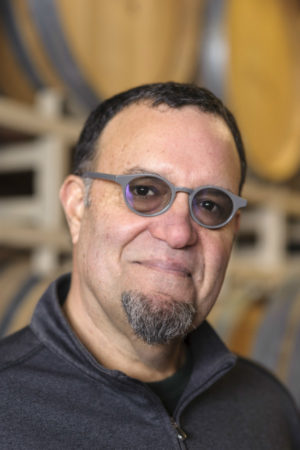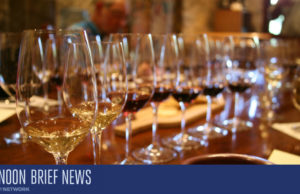By Elizabeth Smith
During these unprecedented times of the COVID-19 pandemic, winery doors were abruptly shut to the public. There has been a scramble to revisit – or reinvent – one’s approach to public relations, marketing, and communications, in order to stand out among the crowd of wineries clamoring for sales, especially direct-to-consumer. Partnering with a public relations agency is one strategy that wineries may consider to amplify their message, but when is a PR agency the right choice and what are the benefits?

The definition of public relations varies, depending on which side of the table one is on, winery or agency, or somewhere in between. According to Lisa Mattson, Director of Marketing and Communications at Jordan Vineyard & Winery in Healdsburg, California, who manages Jordan’s internal and external public relations, it includes “all aspects of communication on behalf of a company—media relations and journalist outreach, social media, writing, and crisis communications.”
Carl Giavanti, owner of Carl Giavanti Consulting, agrees, adding that it also includes “community relations, brand management, reputation management, and damage control.” The broad definition makes it important for the winery and public relations agency relationship to formulate an agreement regarding deliverables, remembering that the agency works or on behalf of the winery, not the other way around.

“Clients need to understand that they are investing in brand building in an outsourced relationship with a service provider,” says Giavanti. “Ongoing and scheduled communications are to be expected. Someone from the winery should be assigned (preferably the owners and winemaker) and readily available as opportunities arise. Agencies are responsible for securing media coverage, while winery clients select the media coverage obtained as part of their content marketing.
“To be successful, it has to be a partnership, but it is my job to tell the story!” Says Dan Warnshuis, owner and winemaker at Utopia Vineyard & Winery in Newberg, Oregon, and one of Giavanti’s clients. He emphasizes that public relations begins with “building awareness in the marketplace of the winery and its wines,” whether it be media about the winery, winemaker, or wine reviews, and adds, “leveraging a firm’s contacts and receiving advice on how to approach publications and writers can be extremely valuable in securing onsite media visits and more frequent, higher- quality articles and reviews.”
Warnshuis looks to Giavanti to bring media opportunities to Utopia, as well as offer expert guidance to create press releases that grab one’s attention and to improve his winery’s website, social media, and winemaking information/tasting notes.
The scope and focus of a winery’s public relations needs and efforts may vary. “There are many different publics, i.e. customers, public, media, trade, government, so public relations is communicating with a winery’s different audiences,” Leeann Froese, owner of Town Hall Brands in Vancouver, British Columbia, reminds us.

“We become trusted insiders on the winery’s team, and we can not only story tell for the winery, but also counsel management and team members on messaging, interview prep, and crisis,” says Froese. She is not interested in what she describes as one-off projects, because “real traction and brand awareness takes time to create the momentum that sticks.”
Mattson’s approach is different since she manages Jordan’s public relations internally. She outsources public relations professionals for short-term, focused projects or what she calls a “public relations virtual assistant,” someone who assists with administrative tasks such as media research, database maintenance, drafting pitches, and follow-up emails and phone calls. From her experience in journalism and public relations, Mattson asserts, “Many public relations consultants do not tailor their pitches correctly or have the journalistic instincts required to be as efficient and effective as we can be inhouse. No one knows the brand better than a full-time employee.”
So why should wineries consider hiring external public relations agencies instead of managing it internally? Giavanti says, “Wineries have challenges – capacity constraints, staffing limitations, and business focus and cost containment.” He knows that few smaller wineries have the budget to invest in a full-time public relations position and estimates that a consultant costs 30 to 50 percent of a full-time position.
Warnshuis believes that working with an agency brings value that would be difficult for him to build up internally. “Public relations professionals have the contacts and expertise to achieve more and better outcomes. From a practical standpoint as the owner/winemaker of a small estate vineyard and winery, I do not have time to develop this expertise to achieve optimal engagement and results required to be competitive in today’s market.”

Mattson warns, “You have to weigh the costs versus benefit. Being a public relations professional requires a specific communications skill set – creativity, strong writing, and attention to detail. If you are paying an agency to do it, I do not see why you would not put that money into having a person inhouse doing it. It is best if you create the messages and content internally, then use a consultant for administrative support and social listening.”
In the end the choice may come down to funding, Froese says, “Even though I own an agency, if a winery is well funded and can afford to have a full-time publicist on the payroll, I think it is a good idea. To be embedded in the winery means the public relations person has the inside track. The caveat is that this is not always the most economical way to do it. To have someone on staff with the right experience and contacts will cost more.”
One thing they can all agree on is that some misconceptions plague the relationship between wineries and agencies as well as the understanding of public relations. Mattson immediate laments the perception, “That all you need to do is send samples to wine writers and get scores. Or, get a gold medal in a wine competition.”
Warnshuis warns of this simplistic approach as well, “Some wineries expect that if they hire a public relations consultant, they will immediately receive 95- to 100-point scores and reviews in prominent publications. Success requires a long-term commitment.”
Giavanti agrees, noting that wineries often ask, “Can you get us on the cover of Wine Spectator, and maybe a feature in Wine Enthusiast? What about a visit from Eric Asimov from the New York Times? The primary misconception is that hiring a public relations consultant will have immediate results and brand acceptance will change overnight. Instead, wineries should be prepared to invest in winery partners and engage long term.”
Froese concludes, “Wineries may not fully understand how public relations professionals spend their time. We do a lot of what just looks like talking, schmoozing, or being online, when in fact, we are constantly researching, writing, and conversing to build new and ongoing relationships that go the distance.”













![Turning the Tables on Melanie Young Melanie Young [Bobby Ryan Portraits]](https://wineindustryadvisor.com/wp-content/uploads/2023/09/MELANIE-YOUNG-HEADSHOT-CROPPED-CREDIT-BOBBY-RYAN-PORTRAITS-e1708030761224-238x178.jpg)





While an in-house media/PR person may have its benefits, I believe an outside person that is knowledgeable about your winery and the industry, can provide better “ear to the ground” information and contacts. Of course every business must make that decision for themselves.